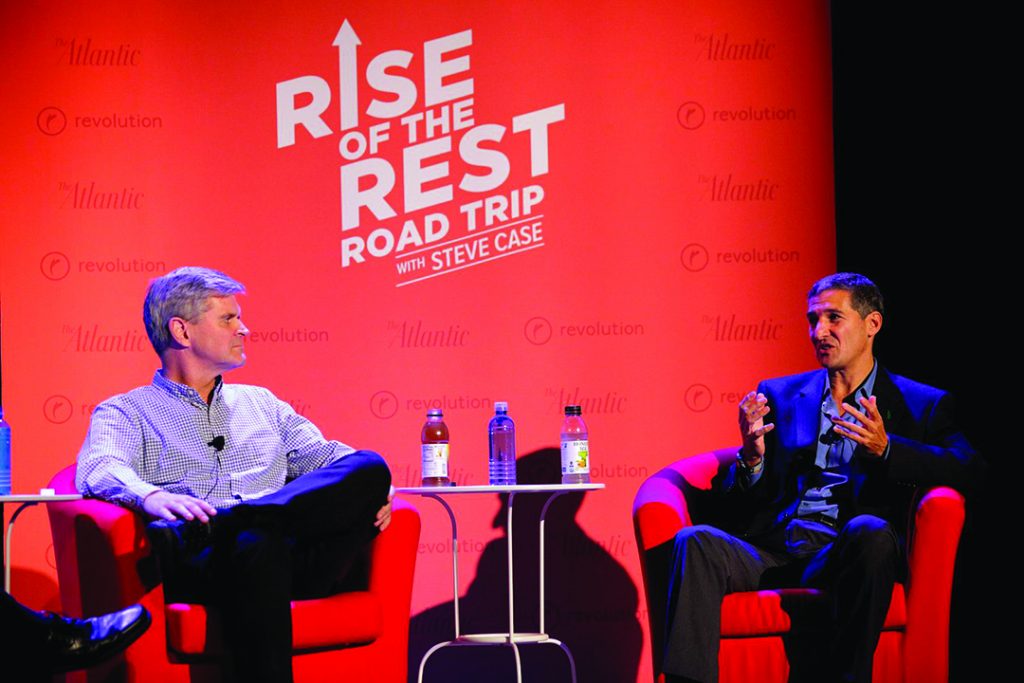Try Leading with This Superpower

Form deeper emotional bonds with your team to create a more inspired, kinder workplace
Some leaders like to think that showing no emotion is what makes them successful. They strive to keep emotions and even intuition out of the workplace, and they face societal pressure to appear strong rather than vulnerable (as if vulnerability were not a strength).
But that type of thinking couldn’t be more wrong. Studies have found that emotional intelligence makes up nearly 90% of what sets high performers apart from their counterparts with the same knowledge and skills. What matters in a business setting is not so much technical know-how and financial acumen, but softer leadership skills.
Being a leader myself, I’ve experienced deeper connections with my team after being vulnerable and opening up about my emotional life. When I was dealing with mom guilt after going back to work, I decided to tell my team about it. Employees really responded — they told me it was relatable to hear about my work and personal hurdles, and it showed them that I was a real human being. It also validated their own feelings, which they might have kept hidden for fear of seeming weak or unprofessional.
Communicating my feelings and leading with emotional intelligence became a strength of mine, creating deeper bonds with my coworkers and motivating them to open up about their struggles. What is Emotional Intelligence?
Emotional intelligence is about self-awareness. Although the majority of people believe they are self-aware, only about 10-15% can show that they practice self-awareness in their daily lives. To be emotionally self-aware, you have to be able to pause and ask yourself which emotions are affecting your actions. What are you feeling right now?
Emotional intelligence also involves viewing things from a different perspective. Self-awareness is a starting point and from there, you can venture into other people’s viewpoints and imagine their emotional lives too. How might emotions be playing a role in your employees’ behaviors?
Practicing emotional intelligence for yourself and others can make leadership more rewarding and more effective. For yourself, it helps dissolve the mask between work and home, allowing you to be yourself confidently, open up, and make more meaningful relationships with the people you work with. Emotional intelligence helps you begin to fulfill your “hierarchy of needs,” which, according to Abraham Maslow’s theory, includes social needs such as acceptance, belonging, friendships, and community groups.
For others, a leader who shows emotional intelligence will be more likely to inspire their team. Research from the Yale Center for Emotional Intelligence found that people who work for supervisors with higher emotional intelligence scores feel 50% more motivated and inspired than employees whose leaders have low scores. Emotional intelligence helps people feel cared about. A workplace with leaders who ask, “How are you feeling today?” is a place people want to work and contribute to growth. Just show interest in your people and create the space for them to show up as they are.
The most important way emotional intelligence operates in the workplace is by making us aware of ourselves, our well-being, others, and their well-being. The more aware we are, the more we can move in the right direction to make a kinder, more motivating, and inspiring (and ultimately productive) workplace.
How to Tap into Emotional Intelligence
Start putting those leadership soft skills to work, tap into the power of intuition, and bring your team along with you by actively practicing emotional intelligence. Here are a few actions you can take to start this journey:
1. Start with yourself.
It might seem like an uphill battle to ask your team members to start practicing emotional intelligence when society has been telling them to avoid it. Starting with your own emotional life can help. Explore your own emotions at work. Be open to whatever they might be, and if you need to, ask for help exploring them — a therapist or leadership mentor can be a good sounding board.
2. Share your experiences.
Like I did when I shared my mom guilt with my team, sharing a personal, emotional experience (especially when it relates to work) can help others offload too, and makes you more relatable as a leader. Lower your own taboo and try talking about your struggles and perceived weaknesses; this vulnerability will show others that it is OK to struggle.
3. Ask questions.
As you learn to approach the world of work through an emotional lens, questions will be extremely helpful. This is true for gauging your own emotional responses, but it’s especially true when you start reviewing your team. Questions can help you discover what other people are going through. Could your teammate possibly have factors within or outside of the workplace that are impacting their performance? Has their engagement with work changed? Do they seem distracted or irritable?
Tonya Towles is the founder and CEO of The PCS Pro Team, a nationwide network helping U.S. military families and working moms find fulfilling careers. She and her active-duty husband are based in Fayetteville, North Carolina. Having experienced poverty and homelessness as a child, Towles is determined to help others build wealth via education and advocacy.
Subscribe today and gain a strategic advantage from the emerging trends and best leadership practices found within Real Leaders magazine.





Responses